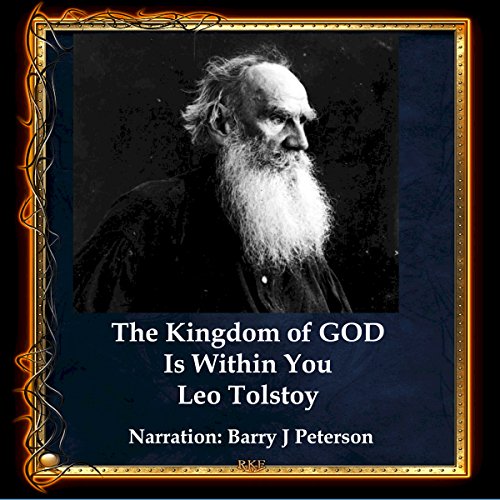
Pistis Sophia, A Gnostic Text Book One Chapter 1-15
Pistis Sophia, A Gnostic Text Book One Chapter 1-15
https://www.patreon.com/AudioEnlightenment
PREFACE, Pistis Sophia; A Gnostic Text
IN the Introduction (pp. xxxv f.) to the first edition (1896), the translator wrote:
"In presenting the following translation to the English-reading public, I may say that I should not have ventured on such an undertaking if any Coptic scholar had undertaken the task, or I had heard that such a task was contemplated. In a matter of so great difficulty every possible liability to error should be eliminated, and it stands to reason that the translation of a translation must needs be but an apology for a first-hand version. Nevertheless I am not without predecessors. The Coptic MS. itself is in the first place a translation, so that even Coptic scholars must give us the version of a translation. I am persuaded also that the anonymous and very imperfect French translation (1856) in the Appendix to Migne's Dictionnaire des Apocryphes (vol. i.) is made from Schwartze's Latin version (1851) and not from the Coptic text. C. W. King in The Gnostics and their Remains (2nd ed., 1887) has also translated a number of pages of the Pistis Sophia from Schwartze. Some three or four years ago Mr. Nutt, King's publisher, sent out a notice proposing the publication of the whole of King's translation,but the project fell through. Last year (1895) I offered to edit this translation of King's, but was informed that the literary legatee of the deceased scholar was of the opinion that it would be unfair to his memory to publish a MS. that was in so incomplete a condition."In 1890 I had already translated Schwartze's Latin version into English and published pages 1 to 252, with comments, notes, etc., in magazine-form from April 1890 to April 1891. But I hesitated to put it forward in book-form, and should not have done so, but for the appearance of Amélineau's French translation in 1895. I then went over the whole again and checked it by Amélineau's version. I was further induced to venture on this undertaking, because the narrative, though dealing with mystical and therefore obscure subjects, is in itself exceedingly simple, and therefore mistakes cannot so readily creep in as into a difficult philosophical work. I, therefore, present my translation with all hesitation, but at the same time think that the English public, which is steadily increasing its interest in mysticism and allied subjects, will be better satisfied with half a loaf than with no bread.

Pistis Sophia, A Gnostic Text Book One Chapter 16-29
Pistis Sophia, A Gnostic Text Book One Chapter 16-29
https://www.patreon.com/AudioEnlightenment
PREFACE, Pistis Sophia; A Gnostic Text
IN the Introduction (pp. xxxv f.) to the first edition (1896), the translator wrote:
"In presenting the following translation to the English-reading public, I may say that I should not have ventured on such an undertaking if any Coptic scholar had undertaken the task, or I had heard that such a task was contemplated. In a matter of so great difficulty every possible liability to error should be eliminated, and it stands to reason that the translation of a translation must needs be but an apology for a first-hand version. Nevertheless I am not without predecessors. The Coptic MS. itself is in the first place a translation, so that even Coptic scholars must give us the version of a translation. I am persuaded also that the anonymous and very imperfect French translation (1856) in the Appendix to Migne's Dictionnaire des Apocryphes (vol. i.) is made from Schwartze's Latin version (1851) and not from the Coptic text. C. W. King in The Gnostics and their Remains (2nd ed., 1887) has also translated a number of pages of the Pistis Sophia from Schwartze. Some three or four years ago Mr. Nutt, King's publisher, sent out a notice proposing the publication of the whole of King's translation,but the project fell through. Last year (1895) I offered to edit this translation of King's, but was informed that the literary legatee of the deceased scholar was of the opinion that it would be unfair to his memory to publish a MS. that was in so incomplete a condition."In 1890 I had already translated Schwartze's Latin version into English and published pages 1 to 252, with comments, notes, etc., in magazine-form from April 1890 to April 1891. But I hesitated to put it forward in book-form, and should not have done so, but for the appearance of Amélineau's French translation in 1895. I then went over the whole again and checked it by Amélineau's version. I was further induced to venture on this undertaking, because the narrative, though dealing with mystical and therefore obscure subjects, is in itself exceedingly simple, and therefore mistakes cannot so readily creep in as into a difficult philosophical work. I, therefore, present my translation with all hesitation, but at the same time think that the English public, which is steadily increasing its interest in mysticism and allied subjects, will be better satisfied with half a loaf than with no bread.

Pistis Sophia, A Gnostic Text Book One Chapter 30-45
Pistis Sophia, A Gnostic Text Book One Chapter 30-45
https://www.patreon.com/AudioEnlightenment
PREFACE, Pistis Sophia; A Gnostic Text
IN the Introduction (pp. xxxv f.) to the first edition (1896), the translator wrote:
"In presenting the following translation to the English-reading public, I may say that I should not have ventured on such an undertaking if any Coptic scholar had undertaken the task, or I had heard that such a task was contemplated. In a matter of so great difficulty every possible liability to error should be eliminated, and it stands to reason that the translation of a translation must needs be but an apology for a first-hand version. Nevertheless I am not without predecessors. The Coptic MS. itself is in the first place a translation, so that even Coptic scholars must give us the version of a translation. I am persuaded also that the anonymous and very imperfect French translation (1856) in the Appendix to Migne's Dictionnaire des Apocryphes (vol. i.) is made from Schwartze's Latin version (1851) and not from the Coptic text. C. W. King in The Gnostics and their Remains (2nd ed., 1887) has also translated a number of pages of the Pistis Sophia from Schwartze. Some three or four years ago Mr. Nutt, King's publisher, sent out a notice proposing the publication of the whole of King's translation,but the project fell through. Last year (1895) I offered to edit this translation of King's, but was informed that the literary legatee of the deceased scholar was of the opinion that it would be unfair to his memory to publish a MS. that was in so incomplete a condition."In 1890 I had already translated Schwartze's Latin version into English and published pages 1 to 252, with comments, notes, etc., in magazine-form from April 1890 to April 1891. But I hesitated to put it forward in book-form, and should not have done so, but for the appearance of Amélineau's French translation in 1895. I then went over the whole again and checked it by Amélineau's version. I was further induced to venture on this undertaking, because the narrative, though dealing with mystical and therefore obscure subjects, is in itself exceedingly simple, and therefore mistakes cannot so readily creep in as into a difficult philosophical work. I, therefore, present my translation with all hesitation, but at the same time think that the English public, which is steadily increasing its interest in mysticism and allied subjects, will be better satisfied with half a loaf than with no bread.

Pistis Sophia, A Gnostic Text Book One Chapter 46-62
Pistis Sophia, A Gnostic Text Book One Chapter 46-62
https://www.patreon.com/AudioEnlightenment
PREFACE, Pistis Sophia; A Gnostic Text
IN the Introduction (pp. xxxv f.) to the first edition (1896), the translator wrote:
"In presenting the following translation to the English-reading public, I may say that I should not have ventured on such an undertaking if any Coptic scholar had undertaken the task, or I had heard that such a task was contemplated. In a matter of so great difficulty every possible liability to error should be eliminated, and it stands to reason that the translation of a translation must needs be but an apology for a first-hand version. Nevertheless I am not without predecessors. The Coptic MS. itself is in the first place a translation, so that even Coptic scholars must give us the version of a translation. I am persuaded also that the anonymous and very imperfect French translation (1856) in the Appendix to Migne's Dictionnaire des Apocryphes (vol. i.) is made from Schwartze's Latin version (1851) and not from the Coptic text. C. W. King in The Gnostics and their Remains (2nd ed., 1887) has also translated a number of pages of the Pistis Sophia from Schwartze. Some three or four years ago Mr. Nutt, King's publisher, sent out a notice proposing the publication of the whole of King's translation,but the project fell through. Last year (1895) I offered to edit this translation of King's, but was informed that the literary legatee of the deceased scholar was of the opinion that it would be unfair to his memory to publish a MS. that was in so incomplete a condition."In 1890 I had already translated Schwartze's Latin version into English and published pages 1 to 252, with comments, notes, etc., in magazine-form from April 1890 to April 1891. But I hesitated to put it forward in book-form, and should not have done so, but for the appearance of Amélineau's French translation in 1895. I then went over the whole again and checked it by Amélineau's version. I was further induced to venture on this undertaking, because the narrative, though dealing with mystical and therefore obscure subjects, is in itself exceedingly simple, and therefore mistakes cannot so readily creep in as into a difficult philosophical work. I, therefore, present my translation with all hesitation, but at the same time think that the English public, which is steadily increasing its interest in mysticism and allied subjects, will be better satisfied with half a loaf than with no bread.

Pistis Sophia, A Gnostic Text Book Two Chapter 63-72
Pistis Sophia, A Gnostic Text Book Two Chapter 63-72
https://www.patreon.com/AudioEnlightenment
PREFACE, Pistis Sophia; A Gnostic Text
IN the Introduction (pp. xxxv f.) to the first edition (1896), the translator wrote:
"In presenting the following translation to the English-reading public, I may say that I should not have ventured on such an undertaking if any Coptic scholar had undertaken the task, or I had heard that such a task was contemplated. In a matter of so great difficulty every possible liability to error should be eliminated, and it stands to reason that the translation of a translation must needs be but an apology for a first-hand version. Nevertheless I am not without predecessors. The Coptic MS. itself is in the first place a translation, so that even Coptic scholars must give us the version of a translation. I am persuaded also that the anonymous and very imperfect French translation (1856) in the Appendix to Migne's Dictionnaire des Apocryphes (vol. i.) is made from Schwartze's Latin version (1851) and not from the Coptic text. C. W. King in The Gnostics and their Remains (2nd ed., 1887) has also translated a number of pages of the Pistis Sophia from Schwartze. Some three or four years ago Mr. Nutt, King's publisher, sent out a notice proposing the publication of the whole of King's translation,but the project fell through. Last year (1895) I offered to edit this translation of King's, but was informed that the literary legatee of the deceased scholar was of the opinion that it would be unfair to his memory to publish a MS. that was in so incomplete a condition."In 1890 I had already translated Schwartze's Latin version into English and published pages 1 to 252, with comments, notes, etc., in magazine-form from April 1890 to April 1891. But I hesitated to put it forward in book-form, and should not have done so, but for the appearance of Amélineau's French translation in 1895. I then went over the whole again and checked it by Amélineau's version. I was further induced to venture on this undertaking, because the narrative, though dealing with mystical and therefore obscure subjects, is in itself exceedingly simple, and therefore mistakes cannot so readily creep in as into a difficult philosophical work. I, therefore, present my translation with all hesitation, but at the same time think that the English public, which is steadily increasing its interest in mysticism and allied subjects, will be better satisfied with half a loaf than with no bread.

Pistis Sophia, A Gnostic Text Book Two Chapter 73-86
Pistis Sophia, A Gnostic Text Book Two Chapter 73-86
https://www.patreon.com/AudioEnlightenment
PREFACE, Pistis Sophia; A Gnostic Text
IN the Introduction (pp. xxxv f.) to the first edition (1896), the translator wrote:
"In presenting the following translation to the English-reading public, I may say that I should not have ventured on such an undertaking if any Coptic scholar had undertaken the task, or I had heard that such a task was contemplated. In a matter of so great difficulty every possible liability to error should be eliminated, and it stands to reason that the translation of a translation must needs be but an apology for a first-hand version. Nevertheless I am not without predecessors. The Coptic MS. itself is in the first place a translation, so that even Coptic scholars must give us the version of a translation. I am persuaded also that the anonymous and very imperfect French translation (1856) in the Appendix to Migne's Dictionnaire des Apocryphes (vol. i.) is made from Schwartze's Latin version (1851) and not from the Coptic text. C. W. King in The Gnostics and their Remains (2nd ed., 1887) has also translated a number of pages of the Pistis Sophia from Schwartze. Some three or four years ago Mr. Nutt, King's publisher, sent out a notice proposing the publication of the whole of King's translation,but the project fell through. Last year (1895) I offered to edit this translation of King's, but was informed that the literary legatee of the deceased scholar was of the opinion that it would be unfair to his memory to publish a MS. that was in so incomplete a condition."In 1890 I had already translated Schwartze's Latin version into English and published pages 1 to 252, with comments, notes, etc., in magazine-form from April 1890 to April 1891. But I hesitated to put it forward in book-form, and should not have done so, but for the appearance of Amélineau's French translation in 1895. I then went over the whole again and checked it by Amélineau's version. I was further induced to venture on this undertaking, because the narrative, though dealing with mystical and therefore obscure subjects, is in itself exceedingly simple, and therefore mistakes cannot so readily creep in as into a difficult philosophical work. I, therefore, present my translation with all hesitation, but at the same time think that the English public, which is steadily increasing its interest in mysticism and allied subjects, will be better satisfied with half a loaf than with no bread.

Pistis Sophia, A Gnostic Text Book Two Chapter 87-101
Pistis Sophia, A Gnostic Text Book Two Chapter 87-101
https://www.patreon.com/AudioEnlightenment
PREFACE, Pistis Sophia; A Gnostic Text
IN the Introduction (pp. xxxv f.) to the first edition (1896), the translator wrote:
"In presenting the following translation to the English-reading public, I may say that I should not have ventured on such an undertaking if any Coptic scholar had undertaken the task, or I had heard that such a task was contemplated. In a matter of so great difficulty every possible liability to error should be eliminated, and it stands to reason that the translation of a translation must needs be but an apology for a first-hand version. Nevertheless I am not without predecessors. The Coptic MS. itself is in the first place a translation, so that even Coptic scholars must give us the version of a translation. I am persuaded also that the anonymous and very imperfect French translation (1856) in the Appendix to Migne's Dictionnaire des Apocryphes (vol. i.) is made from Schwartze's Latin version (1851) and not from the Coptic text. C. W. King in The Gnostics and their Remains (2nd ed., 1887) has also translated a number of pages of the Pistis Sophia from Schwartze. Some three or four years ago Mr. Nutt, King's publisher, sent out a notice proposing the publication of the whole of King's translation,but the project fell through. Last year (1895) I offered to edit this translation of King's, but was informed that the literary legatee of the deceased scholar was of the opinion that it would be unfair to his memory to publish a MS. that was in so incomplete a condition."In 1890 I had already translated Schwartze's Latin version into English and published pages 1 to 252, with comments, notes, etc., in magazine-form from April 1890 to April 1891. But I hesitated to put it forward in book-form, and should not have done so, but for the appearance of Amélineau's French translation in 1895. I then went over the whole again and checked it by Amélineau's version. I was further induced to venture on this undertaking, because the narrative, though dealing with mystical and therefore obscure subjects, is in itself exceedingly simple, and therefore mistakes cannot so readily creep in as into a difficult philosophical work. I, therefore, present my translation with all hesitation, but at the same time think that the English public, which is steadily increasing its interest in mysticism and allied subjects, will be better satisfied with half a loaf than with no bread.

Pistis Sophia, A Gnostic Text Book Three Chapter 102-111
Pistis Sophia, A Gnostic Text Book Three Chapter 102-111
https://www.patreon.com/AudioEnlightenment
PREFACE, Pistis Sophia; A Gnostic Text
IN the Introduction (pp. xxxv f.) to the first edition (1896), the translator wrote:
"In presenting the following translation to the English-reading public, I may say that I should not have ventured on such an undertaking if any Coptic scholar had undertaken the task, or I had heard that such a task was contemplated. In a matter of so great difficulty every possible liability to error should be eliminated, and it stands to reason that the translation of a translation must needs be but an apology for a first-hand version. Nevertheless I am not without predecessors. The Coptic MS. itself is in the first place a translation, so that even Coptic scholars must give us the version of a translation. I am persuaded also that the anonymous and very imperfect French translation (1856) in the Appendix to Migne's Dictionnaire des Apocryphes (vol. i.) is made from Schwartze's Latin version (1851) and not from the Coptic text. C. W. King in The Gnostics and their Remains (2nd ed., 1887) has also translated a number of pages of the Pistis Sophia from Schwartze. Some three or four years ago Mr. Nutt, King's publisher, sent out a notice proposing the publication of the whole of King's translation,but the project fell through. Last year (1895) I offered to edit this translation of King's, but was informed that the literary legatee of the deceased scholar was of the opinion that it would be unfair to his memory to publish a MS. that was in so incomplete a condition."In 1890 I had already translated Schwartze's Latin version into English and published pages 1 to 252, with comments, notes, etc., in magazine-form from April 1890 to April 1891. But I hesitated to put it forward in book-form, and should not have done so, but for the appearance of Amélineau's French translation in 1895. I then went over the whole again and checked it by Amélineau's version. I was further induced to venture on this undertaking, because the narrative, though dealing with mystical and therefore obscure subjects, is in itself exceedingly simple, and therefore mistakes cannot so readily creep in as into a difficult philosophical work. I, therefore, present my translation with all hesitation, but at the same time think that the English public, which is steadily increasing its interest in mysticism and allied subjects, will be better satisfied with half a loaf than with no bread.

Pistis Sophia, A Gnostic Text Book Three Chapter 112-125
Pistis Sophia, A Gnostic Text Book Three Chapter 112-125
https://www.patreon.com/AudioEnlightenment
PREFACE, Pistis Sophia; A Gnostic Text
IN the Introduction (pp. xxxv f.) to the first edition (1896), the translator wrote:
"In presenting the following translation to the English-reading public, I may say that I should not have ventured on such an undertaking if any Coptic scholar had undertaken the task, or I had heard that such a task was contemplated. In a matter of so great difficulty every possible liability to error should be eliminated, and it stands to reason that the translation of a translation must needs be but an apology for a first-hand version. Nevertheless I am not without predecessors. The Coptic MS. itself is in the first place a translation, so that even Coptic scholars must give us the version of a translation. I am persuaded also that the anonymous and very imperfect French translation (1856) in the Appendix to Migne's Dictionnaire des Apocryphes (vol. i.) is made from Schwartze's Latin version (1851) and not from the Coptic text. C. W. King in The Gnostics and their Remains (2nd ed., 1887) has also translated a number of pages of the Pistis Sophia from Schwartze. Some three or four years ago Mr. Nutt, King's publisher, sent out a notice proposing the publication of the whole of King's translation,but the project fell through. Last year (1895) I offered to edit this translation of King's, but was informed that the literary legatee of the deceased scholar was of the opinion that it would be unfair to his memory to publish a MS. that was in so incomplete a condition."In 1890 I had already translated Schwartze's Latin version into English and published pages 1 to 252, with comments, notes, etc., in magazine-form from April 1890 to April 1891. But I hesitated to put it forward in book-form, and should not have done so, but for the appearance of Amélineau's French translation in 1895. I then went over the whole again and checked it by Amélineau's version. I was further induced to venture on this undertaking, because the narrative, though dealing with mystical and therefore obscure subjects, is in itself exceedingly simple, and therefore mistakes cannot so readily creep in as into a difficult philosophical work. I, therefore, present my translation with all hesitation, but at the same time think that the English public, which is steadily increasing its interest in mysticism and allied subjects, will be better satisfied with half a loaf than with no bread.

Pistis Sophia, A Gnostic Text Book Four Chapter 126-135
Pistis Sophia, A Gnostic Text Book Four Chapter 126-135
https://www.patreon.com/AudioEnlightenment
PREFACE, Pistis Sophia; A Gnostic Text
IN the Introduction (pp. xxxv f.) to the first edition (1896), the translator wrote:
"In presenting the following translation to the English-reading public, I may say that I should not have ventured on such an undertaking if any Coptic scholar had undertaken the task, or I had heard that such a task was contemplated. In a matter of so great difficulty every possible liability to error should be eliminated, and it stands to reason that the translation of a translation must needs be but an apology for a first-hand version. Nevertheless I am not without predecessors. The Coptic MS. itself is in the first place a translation, so that even Coptic scholars must give us the version of a translation. I am persuaded also that the anonymous and very imperfect French translation (1856) in the Appendix to Migne's Dictionnaire des Apocryphes (vol. i.) is made from Schwartze's Latin version (1851) and not from the Coptic text. C. W. King in The Gnostics and their Remains (2nd ed., 1887) has also translated a number of pages of the Pistis Sophia from Schwartze. Some three or four years ago Mr. Nutt, King's publisher, sent out a notice proposing the publication of the whole of King's translation,but the project fell through. Last year (1895) I offered to edit this translation of King's, but was informed that the literary legatee of the deceased scholar was of the opinion that it would be unfair to his memory to publish a MS. that was in so incomplete a condition."In 1890 I had already translated Schwartze's Latin version into English and published pages 1 to 252, with comments, notes, etc., in magazine-form from April 1890 to April 1891. But I hesitated to put it forward in book-form, and should not have done so, but for the appearance of Amélineau's French translation in 1895. I then went over the whole again and checked it by Amélineau's version. I was further induced to venture on this undertaking, because the narrative, though dealing with mystical and therefore obscure subjects, is in itself exceedingly simple, and therefore mistakes cannot so readily creep in as into a difficult philosophical work. I, therefore, present my translation with all hesitation, but at the same time think that the English public, which is steadily increasing its interest in mysticism and allied subjects, will be better satisfied with half a loaf than with no bread.

Pistis Sophia, A Gnostic Text Book Five Chapter 136-143
Pistis Sophia, A Gnostic Text Book Five Chapter 136-143
https://www.patreon.com/AudioEnlightenment
PREFACE, Pistis Sophia; A Gnostic Text
IN the Introduction (pp. xxxv f.) to the first edition (1896), the translator wrote:
"In presenting the following translation to the English-reading public, I may say that I should not have ventured on such an undertaking if any Coptic scholar had undertaken the task, or I had heard that such a task was contemplated. In a matter of so great difficulty every possible liability to error should be eliminated, and it stands to reason that the translation of a translation must needs be but an apology for a first-hand version. Nevertheless I am not without predecessors. The Coptic MS. itself is in the first place a translation, so that even Coptic scholars must give us the version of a translation. I am persuaded also that the anonymous and very imperfect French translation (1856) in the Appendix to Migne's Dictionnaire des Apocryphes (vol. i.) is made from Schwartze's Latin version (1851) and not from the Coptic text. C. W. King in The Gnostics and their Remains (2nd ed., 1887) has also translated a number of pages of the Pistis Sophia from Schwartze. Some three or four years ago Mr. Nutt, King's publisher, sent out a notice proposing the publication of the whole of King's translation,but the project fell through. Last year (1895) I offered to edit this translation of King's, but was informed that the literary legatee of the deceased scholar was of the opinion that it would be unfair to his memory to publish a MS. that was in so incomplete a condition."In 1890 I had already translated Schwartze's Latin version into English and published pages 1 to 252, with comments, notes, etc., in magazine-form from April 1890 to April 1891. But I hesitated to put it forward in book-form, and should not have done so, but for the appearance of Amélineau's French translation in 1895. I then went over the whole again and checked it by Amélineau's version. I was further induced to venture on this undertaking, because the narrative, though dealing with mystical and therefore obscure subjects, is in itself exceedingly simple, and therefore mistakes cannot so readily creep in as into a difficult philosophical work. I, therefore, present my translation with all hesitation, but at the same time think that the English public, which is steadily increasing its interest in mysticism and allied subjects, will be better satisfied with half a loaf than with no bread.

Pistis Sophia, A Gnostic Text Book Six Chapter 144-148 ( FINI )
Pistis Sophia, A Gnostic Text Book Six Chapter 144-148 ( FINI )
https://www.patreon.com/AudioEnlightenment
PREFACE, Pistis Sophia; A Gnostic Text
IN the Introduction (pp. xxxv f.) to the first edition (1896), the translator wrote:
"In presenting the following translation to the English-reading public, I may say that I should not have ventured on such an undertaking if any Coptic scholar had undertaken the task, or I had heard that such a task was contemplated. In a matter of so great difficulty every possible liability to error should be eliminated, and it stands to reason that the translation of a translation must needs be but an apology for a first-hand version. Nevertheless I am not without predecessors. The Coptic MS. itself is in the first place a translation, so that even Coptic scholars must give us the version of a translation. I am persuaded also that the anonymous and very imperfect French translation (1856) in the Appendix to Migne's Dictionnaire des Apocryphes (vol. i.) is made from Schwartze's Latin version (1851) and not from the Coptic text. C. W. King in The Gnostics and their Remains (2nd ed., 1887) has also translated a number of pages of the Pistis Sophia from Schwartze. Some three or four years ago Mr. Nutt, King's publisher, sent out a notice proposing the publication of the whole of King's translation,but the project fell through. Last year (1895) I offered to edit this translation of King's, but was informed that the literary legatee of the deceased scholar was of the opinion that it would be unfair to his memory to publish a MS. that was in so incomplete a condition."In 1890 I had already translated Schwartze's Latin version into English and published pages 1 to 252, with comments, notes, etc., in magazine-form from April 1890 to April 1891. But I hesitated to put it forward in book-form, and should not have done so, but for the appearance of Amélineau's French translation in 1895. I then went over the whole again and checked it by Amélineau's version. I was further induced to venture on this undertaking, because the narrative, though dealing with mystical and therefore obscure subjects, is in itself exceedingly simple, and therefore mistakes cannot so readily creep in as into a difficult philosophical work. I, therefore, present my translation with all hesitation, but at the same time think that the English public, which is steadily increasing its interest in mysticism and allied subjects, will be better satisfied with half a loaf than with no bread.

Pistis Sophia, A Gnostic Gospel: GRS Mead , Complete Audiobook
Pistis Sophia, A Gnostic Gospel: GRS Mead , Complete Audiobook
Pistis Sophia (Koinē Greek: Πίστις Σοφία) is a Gnostic text discovered in 1773, possibly written between the 3rd and 4th centuries AD. The existing manuscript, which some scholars place in the late 4th century, relates one Gnostic group's teachings of the transfigured Jesus to the assembled disciples, including his mother Mary, Mary Magdalene, and Martha. (In this context, "transfigured" refers to Jesus after his death and resurrection, not the event during his life where he spoke to appearances of Moses and Elijah on a mountain.) In this text, the risen Jesus had spent eleven years speaking with his disciples, teaching them only the lower mysteries. After eleven years, he receives his true garment and is able to reveal the higher mysteries revered by this group. The prized mysteries relate to complex cosmologies and knowledge necessary for the soul to reach the highest divine realms.
Much of the first two books of the manuscript are dedicated to outlining the myth of the fall and restoration of the figure known as Pistis Sophia, in particular giving detailed parallels between her prayers of repentance and particular Psalms and Odes of Solomon.
Although in many Gnostic texts and systems Sophia is a major female divinity, in Pistis Sophia she originates and dwells outside of the divine realm. Her fall and redemption parallel that found in versions of the Sophia myth such as that in the Apocryphon of John, but the actions all take place in the material aeons, and she can only be restored to her place in the thirteenth aeon, outside the Kingdom of Light.
Narrated by Barry Peterson
Pistis Sophia (a Gnostic Gospel)
- … and GOD Said: The Circle of Light
- Archangel Michael Higher Truths
- Ashtavakra Samhita (or Song of Ashtavakra)
- Comte de Gabalis (Dialogs on the Secret Sciences)
- Daily I AM Discourse
- Elemental Grace Alliance – Council
- Elemental Grace Alliance – The Seven Steps to Precipitation
- Enuma Elish – The Babylonian Epic of Creation
- I AM Mastery Course (by Ronna Herman Vezane)
- Krishna’s Council in the Time of War (The Bhagavad Gita)
- Lao Tzu – The Tao Te Ching
- Lost Books of Eden (of the Bible)
- Messages from Archangel Michael
- Moments with Archangel Michael
- Parables of Kryon
- Pistis Sophia (a Gnostic Gospel)
- Second Book of Acts (Mary Speaks of Reincarnation!)
- SPEAK to the Universe (Do these Daily)
- The Aquarian Gospel of Jesus the Christ
- The Arbatel of Magick, of the Magic of the Ancients
- The Café at the End of the Universe
- The Daily “I AM” Meditations
- The Daily Meditations
- The Divine Pymander of Hermes
- The Emerald Tablets of Thoth the Atlanean
- The Essene Gospels of Peace
- The Forty Days and Forty Nights
- The Kybalion, The Three Initiates (Hermetic)
- The Most Holy Trinosophia of Le Comte De St Germain
- The Sermon of Zostrianos (Gnostic Texts)
- The Sermons of Meister Eckhart
- The Tripartite Tractate (Nag Hammadi Codex)
- The Urantia Book – Wisdom Snippets
- The Wisdom: 55 Pleiadean Illumination by Tamar Thomas
- The Zohar (The Book of Radiance)
- Wisdom of The Ascended Masters
- Wisdom Snippets


YouTube

HUGE Audio Book SALE, over 200 Books. $19.95 Each, CLICK HERE

AS AN AMAZON ASSOCIATE I EARN FROM QUALIFYING PURCHASES


Proudly Featured
** You can use this badge free of charge on your website


This project is NON-profit.
All earnings via links are going to their respective owners. If you need to add an affiliate link to your product (which is listed on any of our pages), send Admin a message.
Thank you




































